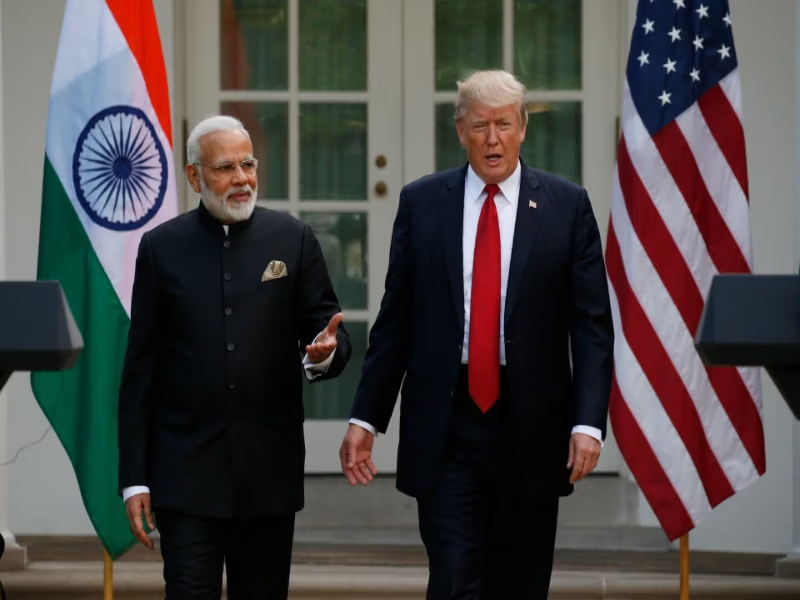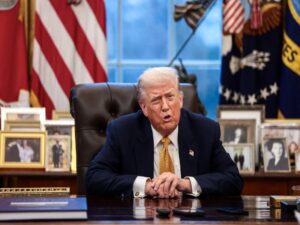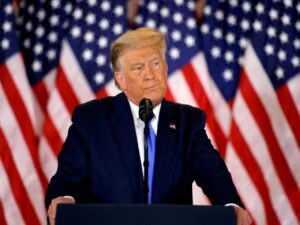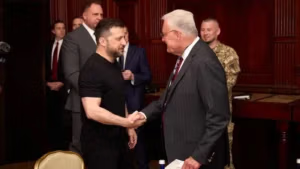In a move that promises to soothe tensions between the two largest economies, U.S. President Donald Trump claimed to have talked to Indian Prime Minister Narendra Modi over a dispute over tariffs and Indian buybacks of Russian oil.
In a social media message on Tuesday, President Trump said he had a wonderful call with the Indian leader and wished him a happy birthday. He commented, “He is doing a tremendous job, Narendra: Thank you for your support on ending the War between Russia and Ukraine!”
The call followed as the two countries began trade talks this week, which both sides described as positive, as they seek to re-establish a relationship after Trump last month decided to impose 50 percent tariffs on the South Asian country’s exports.
President Trump had increased the 25 percent rate of import tax on Indian goods, which was meant to counter the tariffs of the country and other trade barriers, by increasing it twice as much as a way of also punishing New Delhi for its continued purchase of Russian energy.
Modi wrote on X (formerly known as Twitter) that India is in favor of Trump’s “initiatives towards a peaceful resolution of the Ukraine conflict.”
According to Ukraine and its allies, India’s and China’s acquisition of Russian energy undermines the global sanctions of Russian President Vladimir Putin that seek to pressure the Kremlin to terminate the war against its neighbor. Indian officials have justified the country’s purchase of energy, and they have insisted that they will keep on buying Russian oil as long as they can afford it.
In a message on the Kremlin site, Putin also wished birthday greetings to Modi “great personal contribution to strengthening” to the strengthening of India-Russia relations.
On Wednesday, Indian equities trading soared, and the rupee gained against the dollar. The call raised cautious optimism among analysts regarding the India-US relations.
According to Amitendu Palit, senior research fellow and research lead on trade and economics at the Institute of South Asian Studies, Trump’s statement was “This is a typical carrot and stick approach. His officials remain critical of India, but there is this understanding that lets us not give up on the diplomatic route.”
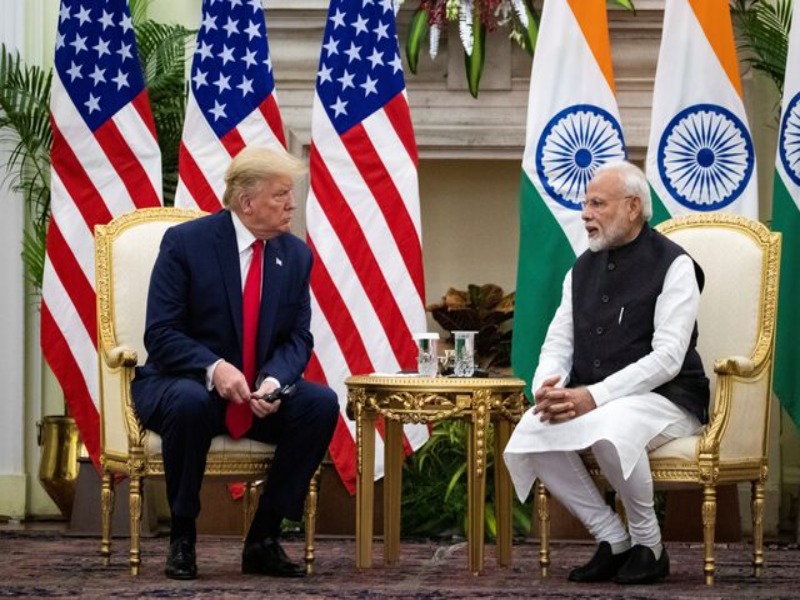
White House trade advisor Peter Navarro has been escalating pressure on India to stop its Russian oil purchases, and even characterized the war in Ukraine as Modi’s, in his statement, “Modi’s war.”
A bilateral agreement between the US and India was already agreed upon and was expected to be finalized this fall, but the discussions had fallen apart, and recent months have seen Trump harden his position against New Delhi as he seeks to increase pressure on its relationship with Russia.
The denial of refining dairy and agriculture markets by New Delhi is also one of the factors that have contributed to the stalling of the talks.
In his social media post, Modi wrote, “fully committed to taking the India-US Comprehensive and Global Partnership to new heights.”
The dispute between the US and India regarding oil purchases remains unresolved. In recent weeks, Trump has mounted pressure on other allies, such as the Group of Seven nations, to similarly tighten the sanctions on both India and China, which are the largest purchasers of Russian energy.
Those further sanctions pose a risk of complicating the process of negotiating a trade agreement with New Delhi and disrupting an intricate trade truce between Washington and Beijing.
Biswajit Dhar, a professor at the Council for Social Development, a New Delhi-based research institute, states that “The call shows that there is clearly a thaw and the ice is melting, but I would say we shouldn’t read too much into this. India has put all its cards on the table. It is up to America now to respond.”


